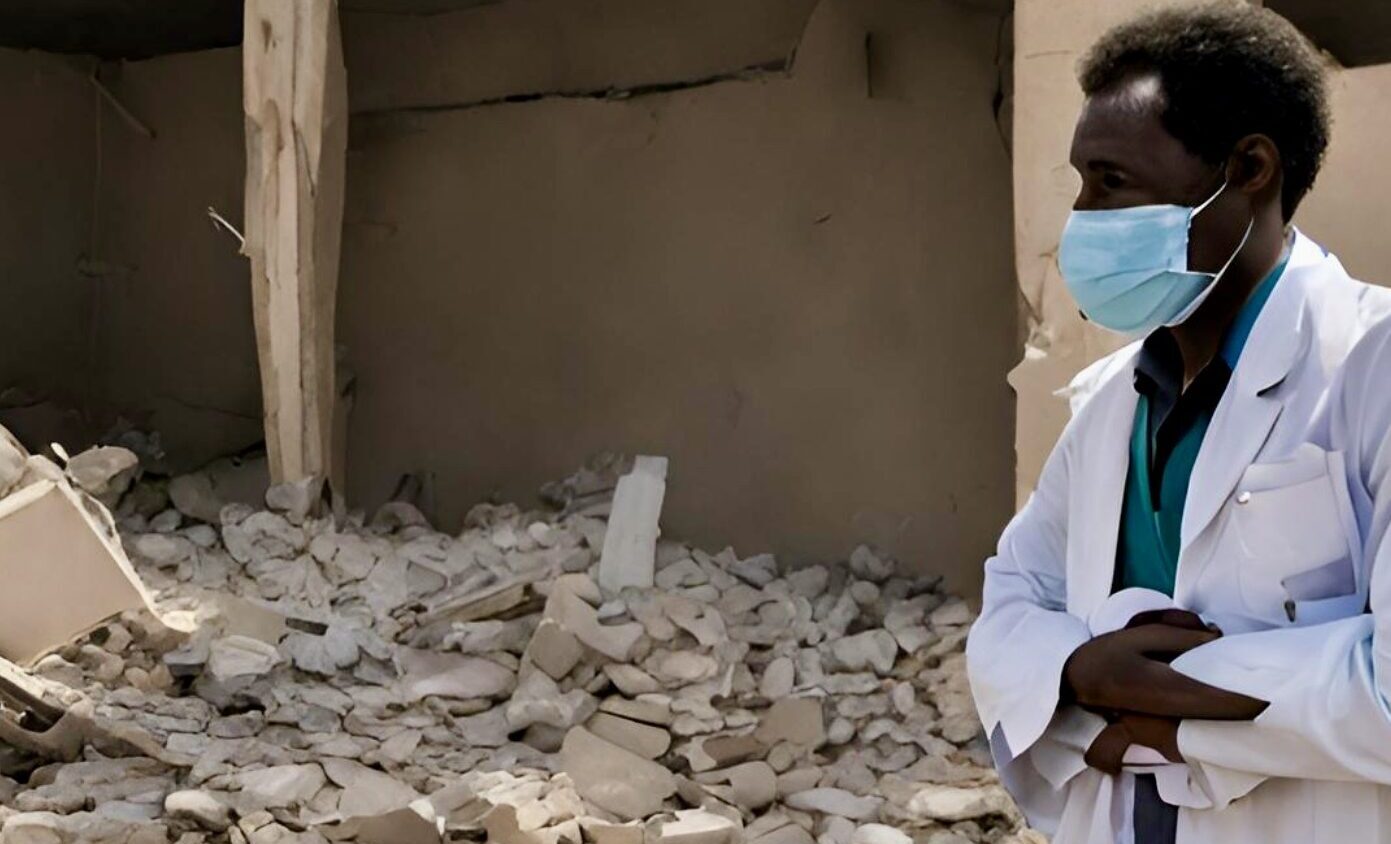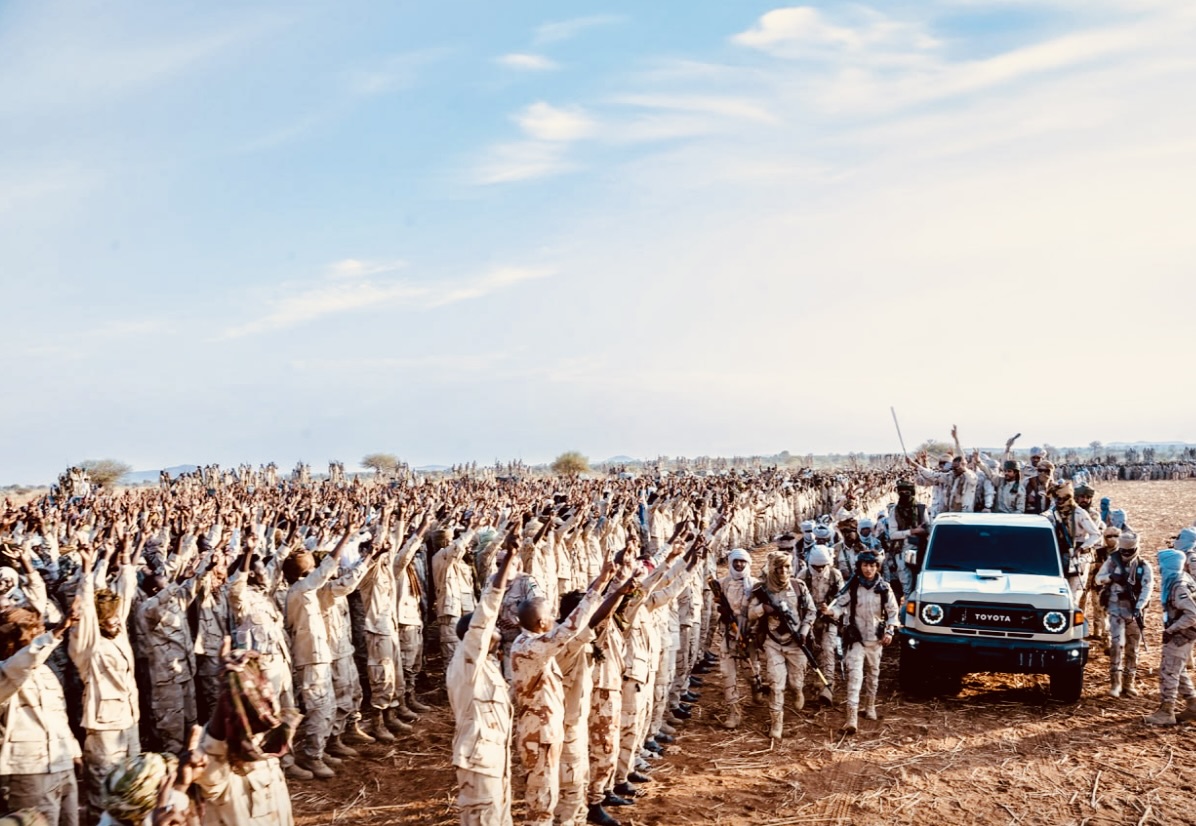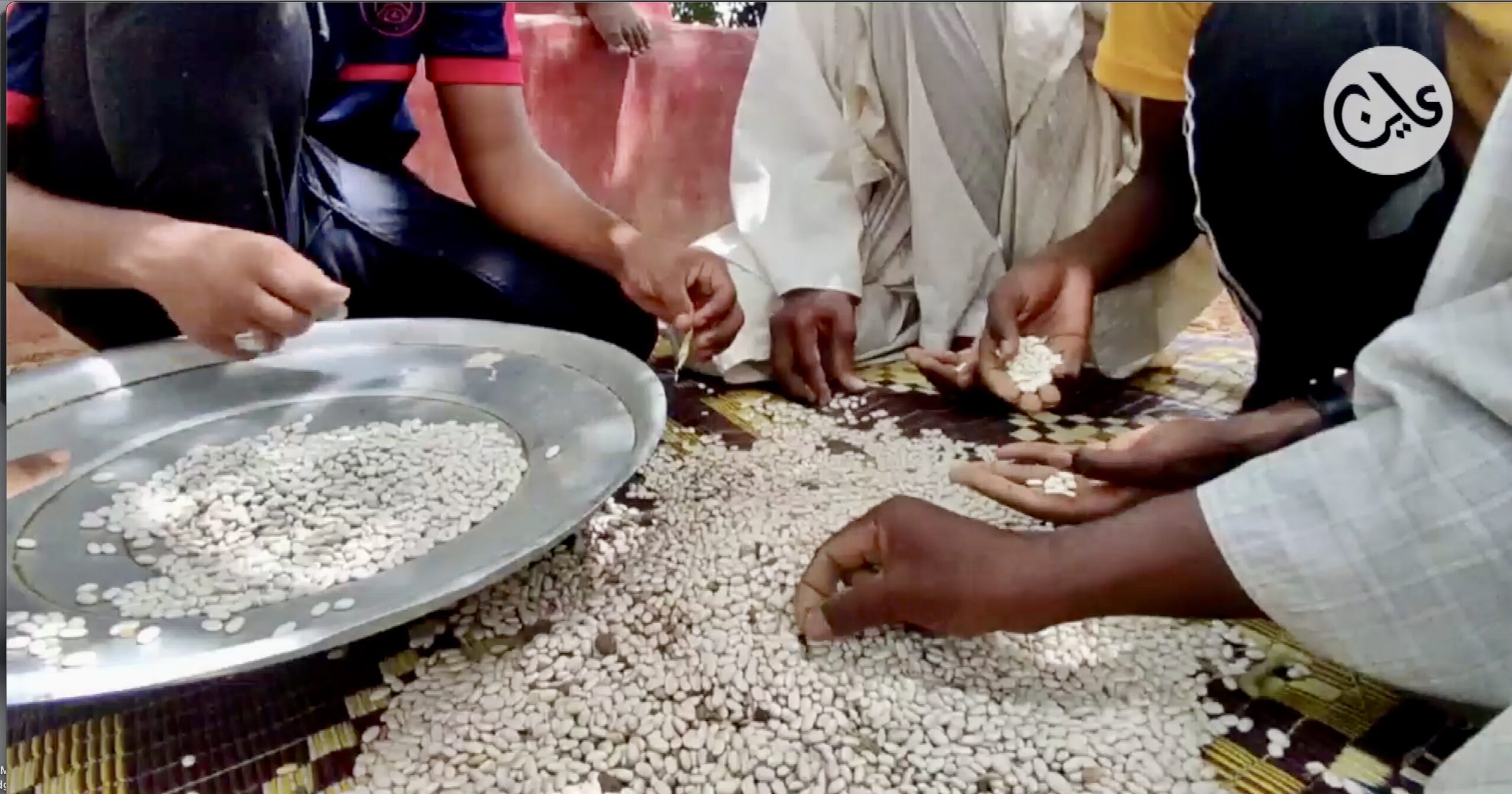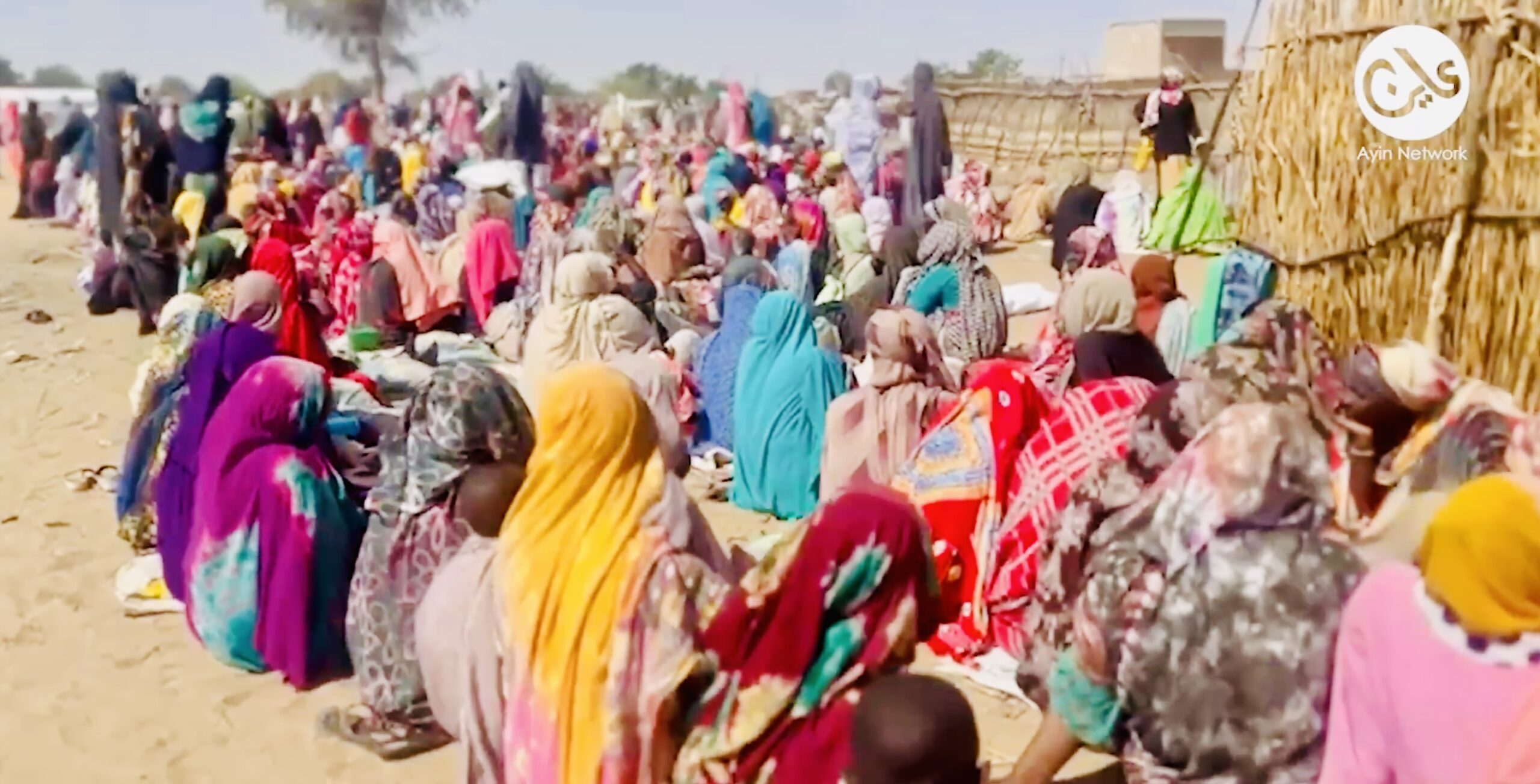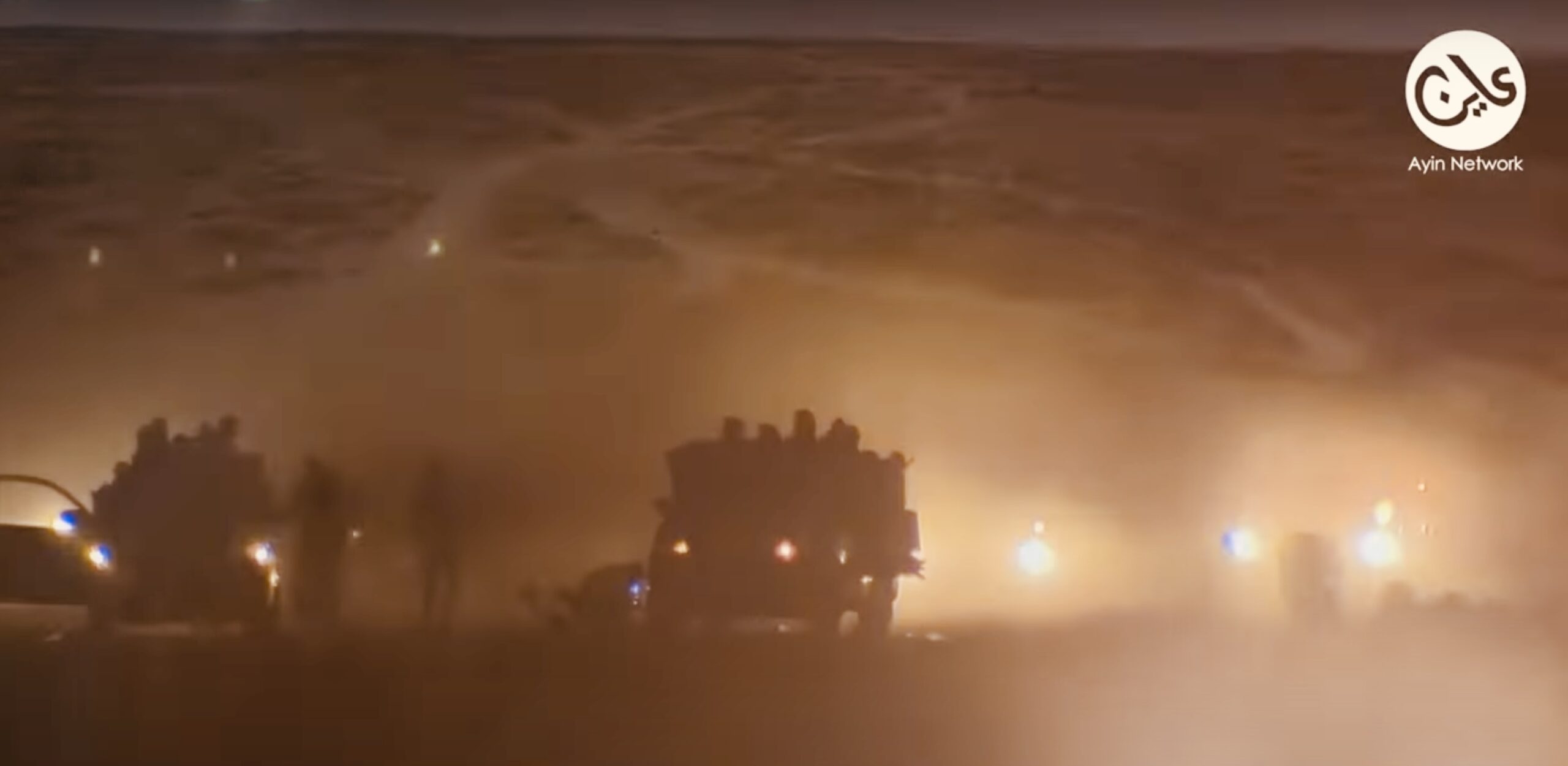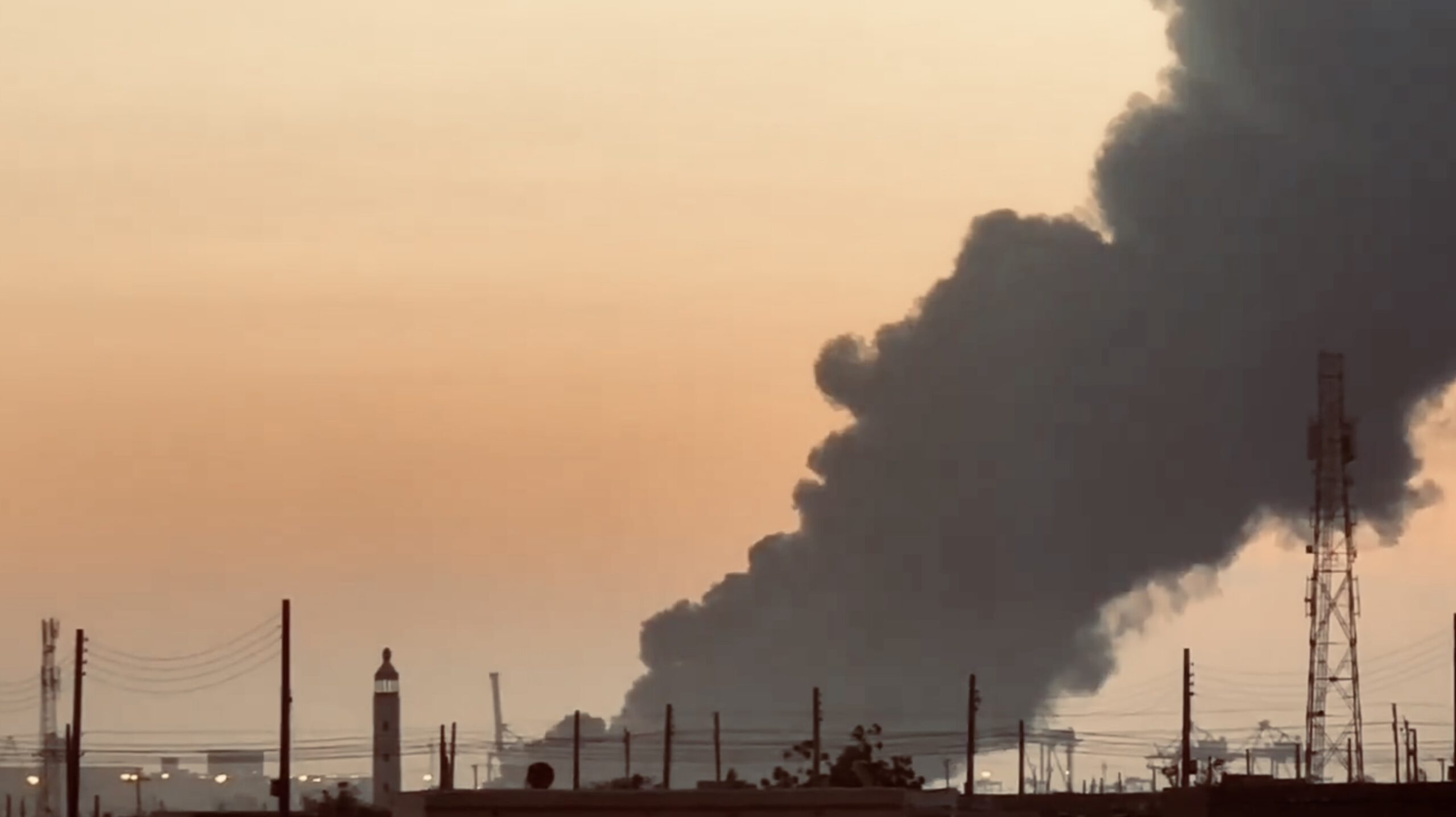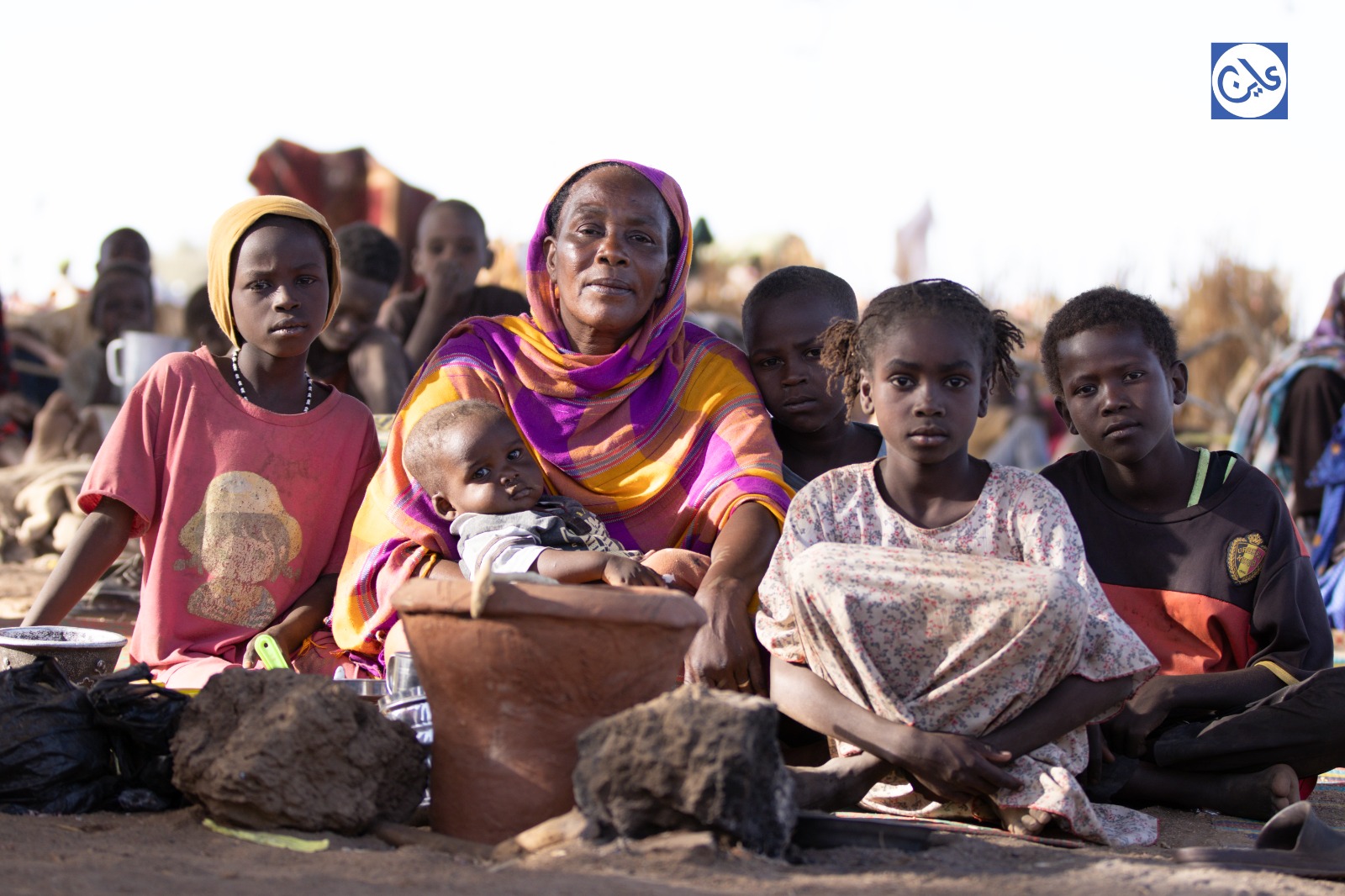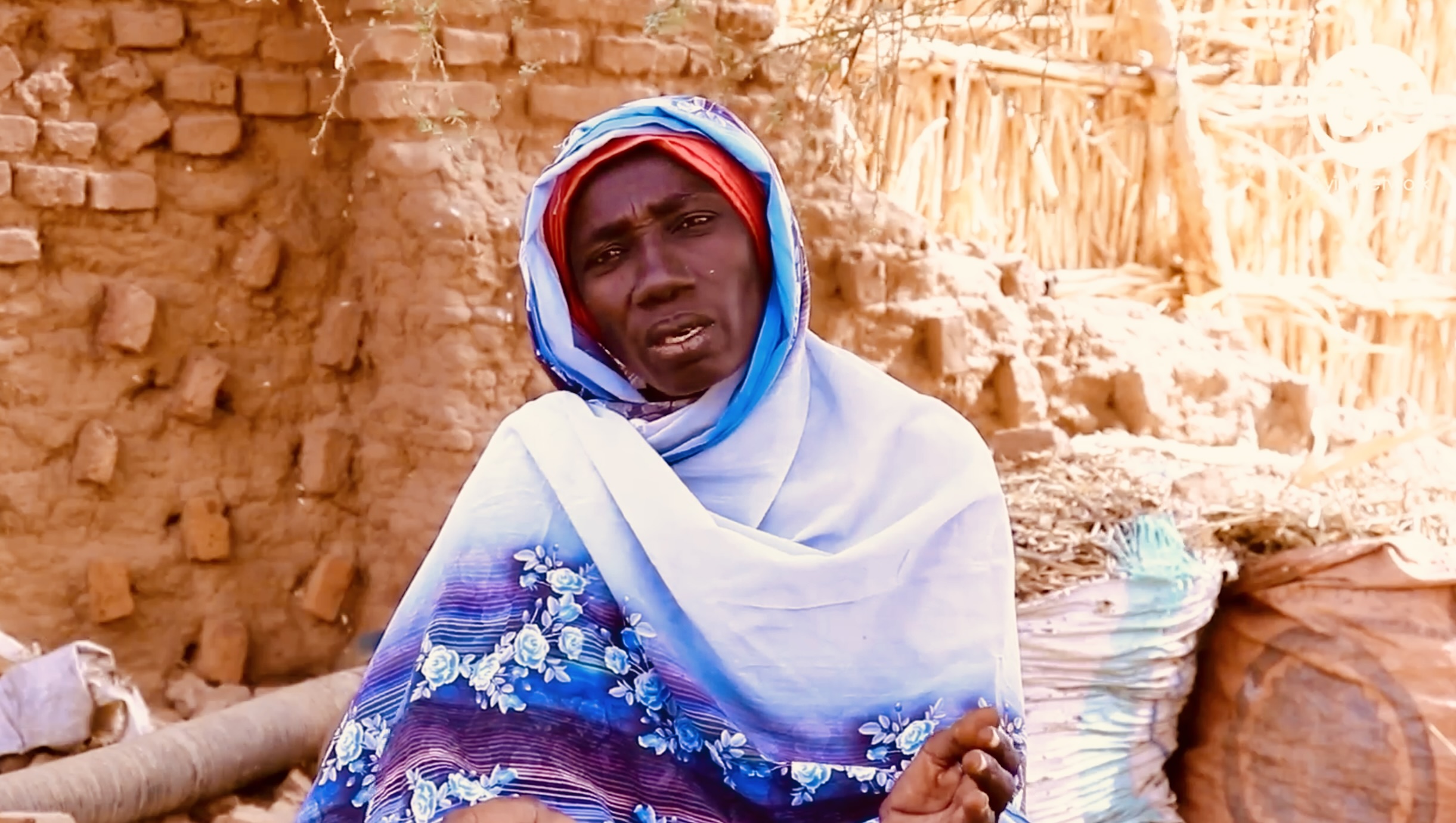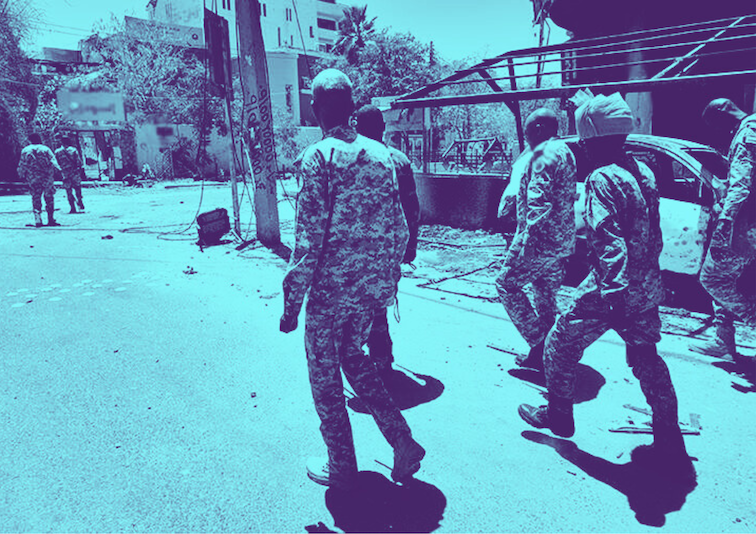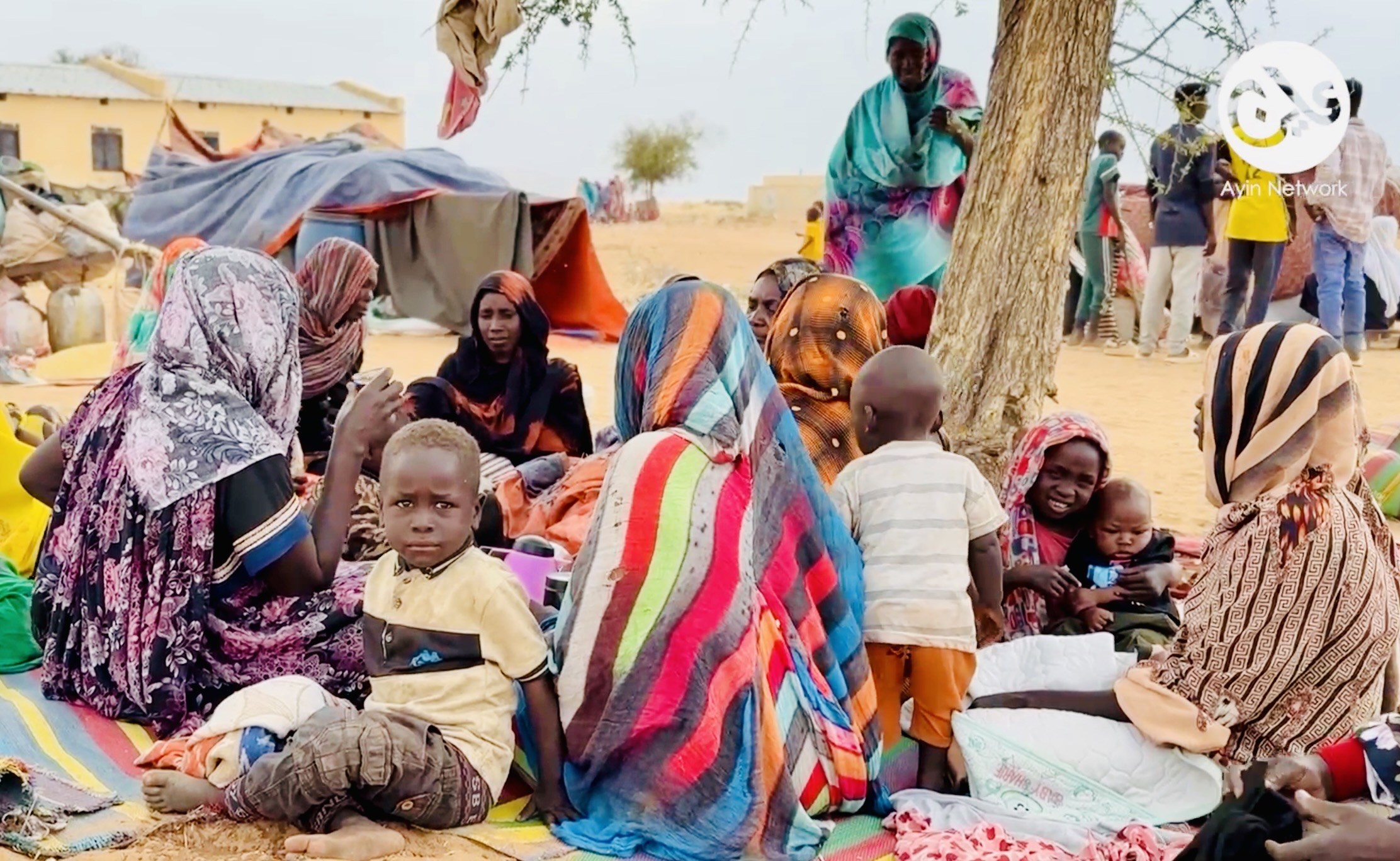Sudan’s health care system nears collapse: ‘It is deteriorating by the hour’
31 December 2023
As of December, the UN estimated around 12,000 people have died in over eight months of conflict. To Dr. Abdul Rahim Muhammed, who works voluntarily in the Kalakla area of Khartoum, this estimated death rate is far lower than the actual figure since many are unaccounted for –dying in silence from a lack of medical treatment. “Many citizens die due to the inability to access health facilities,” Dr. Muhammed told Ayin. “Many deaths have occurred outside of health facilities and have not been accounted for.” As access to medical treatment continues to shrink, Dr. Muhammed says, this depressing trend will only continue to get worse.
Since mid-April, a war of dominance between Sudan’s army and the paramilitary Rapid Support Forces (RSF) has taken place. Both warring parties continue to target medical facilities, personnel, and medical supplies to the point where huge swathes of the country lack even the most basic health services.
“I can honestly and openly say the health system has completely collapsed. It is on its knees,” said Ahmed Abbas, from the Sudan Doctors Union. “It is deteriorating by the hour.”
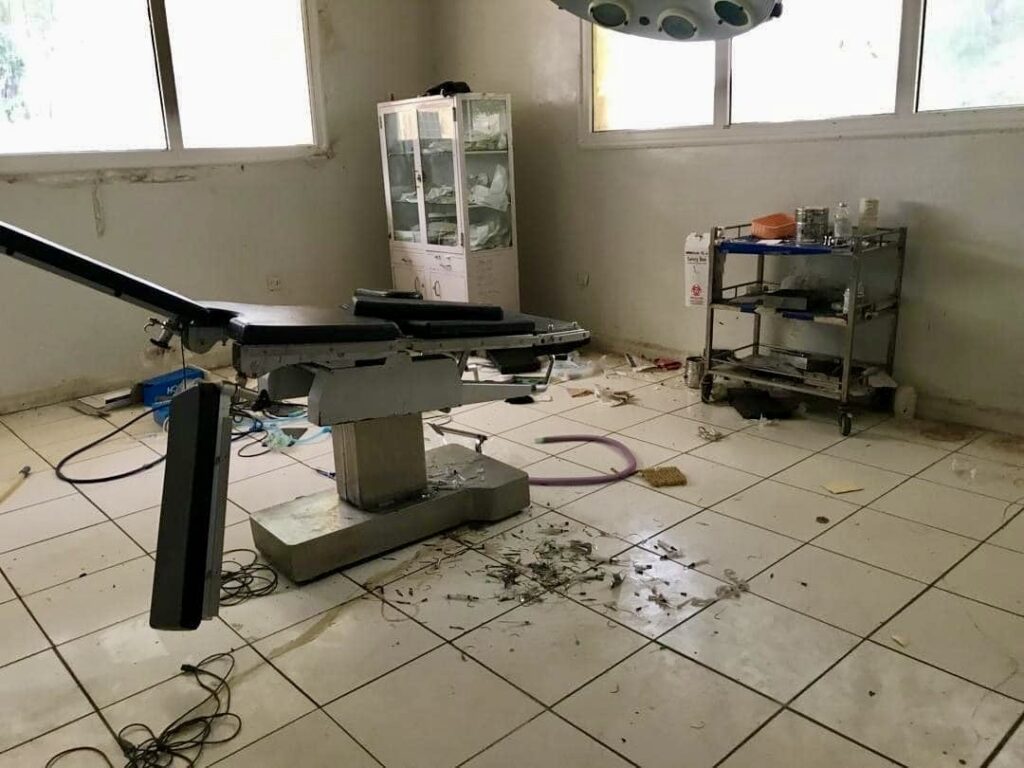
While difficult to ascertain exactly how many facilities are operating at any given time, Abbas estimates close to 80 percent of hospitals are out of service.
In Central Darfur State, the Director General of the Ministry of Health, Ahmed Nasreldeen, told Ayin that hospitals in the state capital, Zalingei, are operating at less than 10 percent capacity. According to Nasreldeen, four out of the five main hospitals in the state are out of service due to looting and the departure of medical staff.
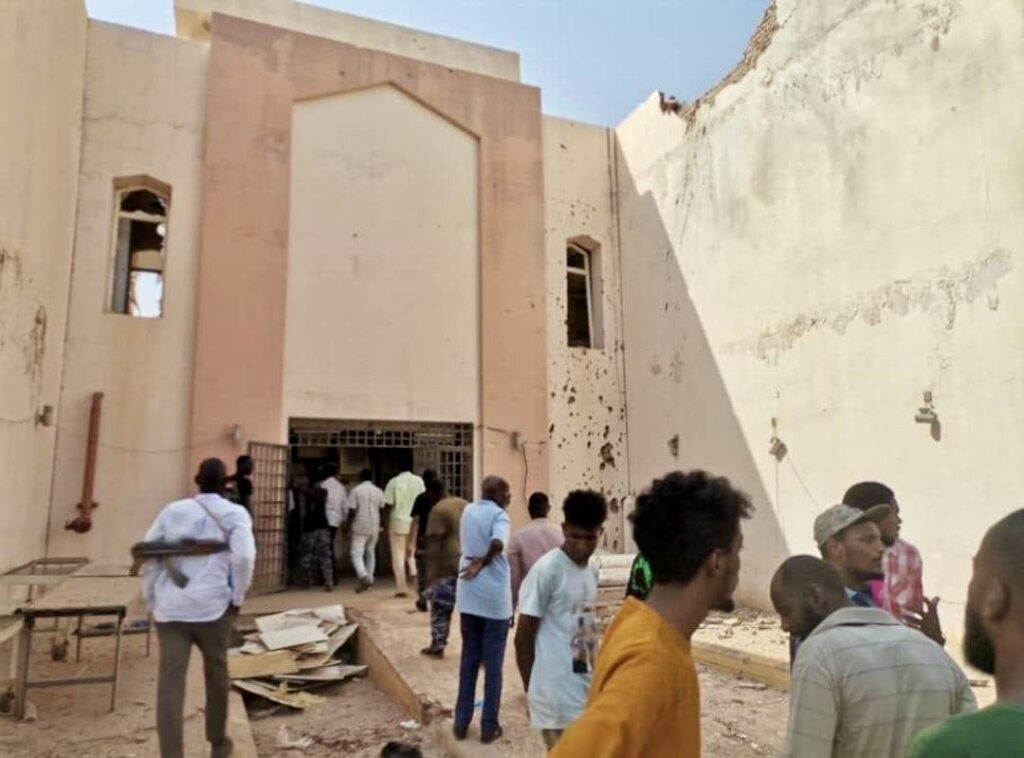
Al-Nau Hospital
Access to functioning hospitals in the country’s capital, Khartoum, does not fare any better. On 9 October shelling hit Al Nau Hospital, one of the few still operating in Khartoum. A statement from the medical charity, Doctors Without Borders (MSF), said a shell hit the hospital’s emergency department, killing two patient caretakers, and injuring five people. Four more shells exploded just outside the hospital, killing two and leaving many injured.
Even before the attack, the hospital was struggling with overcrowding and dwindling supplies, says Al-Nau Hospital volunteer Salim Amin*. The facility was one of the few operating health facilities remaining in the city as RSF troops were blocking access to other facilities. Just getting to the location, Salim said, could be difficult for many patients who are forced to travel through fighting or past soldiers.
“Medications are completely unavailable, with the hospital having only an emergency pharmacy and limited supplies like gauze and anesthesia,” Salim said. “We are reaching out to the public through the media, urging them to donate or collect money to purchase these essential items, as the Ministry of Health’s medicine stores are empty.”
As their ability to treat patients suffered, the volunteer at Al-Nau said there were still more patients coming to the hospital – and many with severe wounds from clashes and shells. The hospital staff were trying to attend to each patient, but without supplies, many did not survive. “Every day, we bury more than ten people due to our inability to offer medical aid.”
Targeting health
Sudan’s health sector was one of the first casualties of the war, according to Omar el Najeeb, Sudan’s former health minister. “Everyone remembers how medical facilities were among the first sites to be destroyed, as RSF troops raided hospitals and clinics while the air force indiscriminately bombed these buildings,” Najeeb said in an interview with Radio Dabanga.
The former minister accuses both warring parties of deliberately targeting hospitals and other health facilities in the country. “For instance, the battle for Al Jazeera, in particular for the capital Wad Madani, has led to the forced closure of all hospitals in the state.”
After the near total collapse of the health sector in Khartoum, the central city of Wad Medani became the only destination for patients from all over the country who required specialised treatments such as heart, brain, and nerve surgery. Cancer patients such as Hassan Ibrahim, for instance, had made the precarious journey to Wad Medani for treatment three months ago –only to find the conflict had found them there- forcing him and his brother Youssef to return to Darfur without completing his treatment.
Within the first eight months of conflict, the warring parties have attacked 60 facilities, killing 34 medical personnel and injuring 38 others, according to data from the World Health Organisation. In 19 cases, the data shows there was an abduction, arrest, assault, or a violent search of healthcare personnel, often in the same incident as a takeover of a hospital or removal of medical assets.
In other cases, mass looting of health facilities has rendered the medical sites useless. From mid-April to October 2023, the data-driven, humanitarian organisation Insecurity Insight, estimated 54 cases of looting medical supplies had taken place across the country. Last April, the country’s second-largest medical supply warehouse based in Nyala, the capital of South Darfur State, was looted, directly affecting pharmaceutical stocks for all five Darfur states.
The Director of the Department of Medicines in South Darfur State, Dr. Muhammad Mahmoud, says the war has destroyed large quantities of the medical stock of the Medical Supply Authority, in addition to the drug stock of the World Health Organization. The dearth of available medicines has induced the closures of medical facilities, Dr. Mahmoud told Ayin and invited medical “quacks” to enter the market. “Medicines have become transported in random ways and are traded like any other food commodity. Citizens have found themselves forced to use medicines that are not subject to specifications and lack the minimum medical safety procedures,” he added.
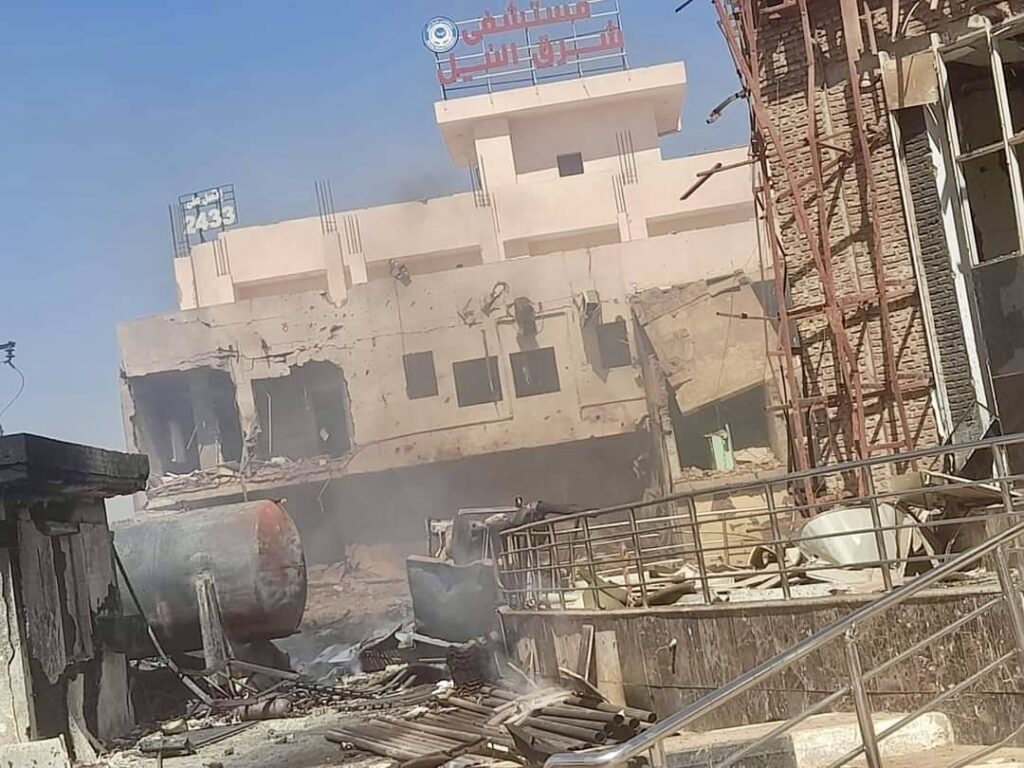
Blocked access
Even when hospitals manage to continue functioning, many people are unable to get to access facilities. Khalid Osman* told Ayin his diabetic mother needed medical treatment in late April. Her condition was up and down, and she kept falling in and out of a coma. Osman tried to get her to the East Nile hospital, the closest one in his neighborhood so that he could get her blood tested and get the necessary medication to stabilize her condition. But at the hospital doors, RSF soldiers blocked the way.
“He said to me ‘Go away, this hospital is ours. Citizens are not allowed,’” he said. “I tried to talk to him. I told him there was no hospital nearby and the roads were blocked. I can not take her anywhere else.” Khalid said the soldier just told him to leave. “They absolutely forbid citizens from entering the hospital.”
With no other medical options available, Khalid said his mother passed away later that day. “I tried to rescue her but we couldn’t because all the hospitals were not accessible.” By mid-May, the Sudanese Air Force hit the East Nile Hospital, destroying the interior completely. At that time, a ward at the Khartoum Teaching Hospital and the Al-Shaab Teaching Hospital were both shut down after being damaged by shelling.
In other cases, authorities under the Sudan Armed Forces have placed obstructive administrative and bureaucratic restrictions hampering international aid organisations from extending existing operations or launching new ones. According to MSF, their experienced emergency medical staff were blocked in June from traveling from Port Sudan to areas with greater medical needs. Medics in the team were unable to treat a single patient, MSF reported.
In September, the RSF placed a ban on transporting surgical supplies in the areas they control in the capital, the MSF reported. The ban is intended to prevent the treatment of wounded army soldiers, the medical charity claims. “The ban is a ruthless tactic that will likely cause the preventable deaths of hundreds of people in Khartoum over the coming weeks,” says Claire Nicolet, MSF’s head of emergencies for Sudan.
Across the country, humanitarian organizations say access barriers are making it impossible to treat the millions of displaced housed in camps or temporary accommodations - and those people often have urgent needs after having traveled to safety from conflict-affected regions.
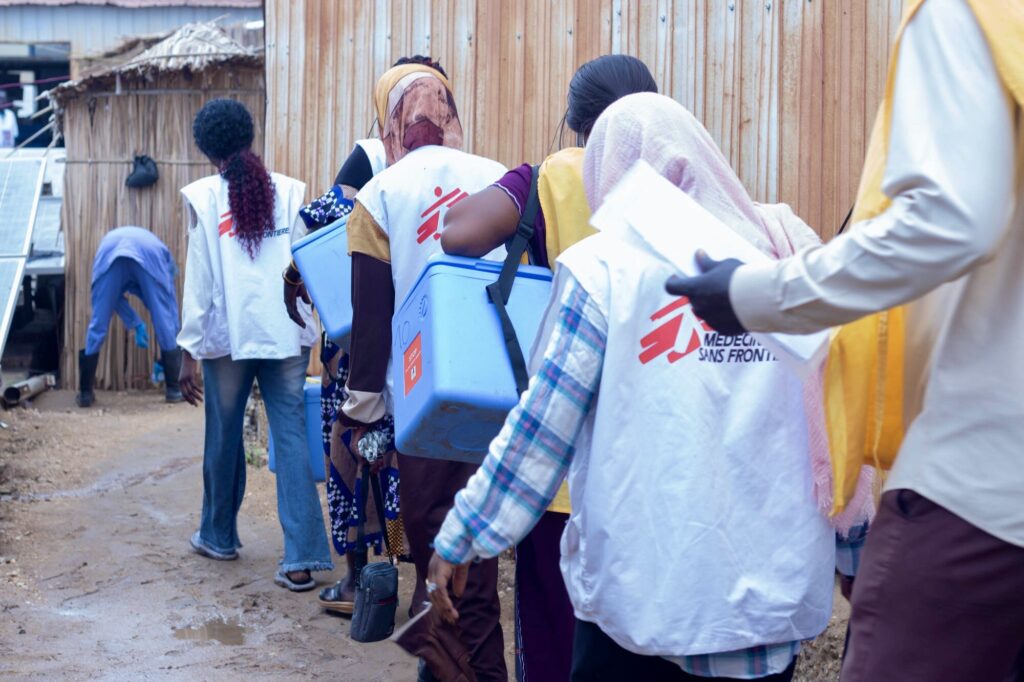
In White Nile state, a lack of essential medicines, staff, and supplies is severely hampering health services in all 10 refugee camps, where over 144,000 newly displaced refugees from Khartoum have arrived since the conflict started, the UN reported.
“People are dying while the country’s health system buckles under the weight of overwhelming needs,” says Jean Nicolas Armstrong Dangelser, MSF Emergency Coordinator in Sudan.
“By subjecting people to shocking levels of violence, or by restricting medical organisations from helping them, the warring parties in Sudan are showing a complete disregard for civilian lives.”




